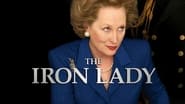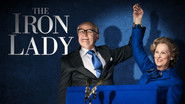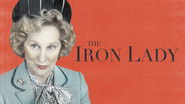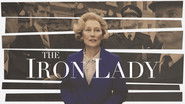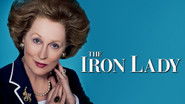classicsoncall
There's little room for argument that Meryl Streep deserved the Best Actress for her portrayal of Margaret Thatcher, but I couldn't help thinking that the movie itself was a bit of a hit piece on the conservative British Prime Minister. Instead of examining Thatcher's tenure as PM in detail, the story had more to do with her slide into dementia following the death of husband Denis (Jim Broadbent). If that was to be the focus of the movie, why call it "The Iron Lady"? The real Iron Lady dealt with the United Kingdom's fiscal irresponsibility and stood firm against colleagues and opponents alike during the Falklands crisis. She brought Britain's role in the world back to some semblance of authority while the rest of Europe preferred to (and still does) surrender sovereignty to a monolithic entity with little regard for the common man who votes their politicians into power. Thatcher's commitment to self reliance, independence and hard work is generally alluded to but never given the kind of recognition that would inspire a viewer to follow in her footsteps. Regarding the film makers' choice of Streep in the title role is akin to selecting Jane Fonda for the role of Nancy Reagan in Lee Daniels' "The Butler", that is to say, something of a poke in the eye toward Conservatives, considering Streep's own political views. What was kind of ironic in retrospect was something Lady Thatcher stated while running for the position of Prime Minister, as it relates to the recent election of our own current President. She said "It's time to put the 'Great' back into Great Britain". It sounded like something old that's become new again.
ElMaruecan82
In the 80's, French singer Renaud signed a famous musical tribute to women, praising their natural lack of involvement in men's ugliest passions: hooliganism, gun, violence or cars... Refrains ended the same: "no chick is a hooligan, nor imbecile nor murderer, no, not even in Britain except, of course, Mrs. Thatcher" or "no woman is wretched enough, to polish a revolver, and feel herself invincible except, of course
" well you got the point. You can find the song on Youtube with English subtitles.So, it's not just that the aura of Mrs. Thatcher exceeded the limits of the British Channel and turned her into the punching ball for left-wing artists from all over the world, it is the rhetorical harshness. Basically, Miss Maggie (which is the title of the song) was an exception among all the distinguished members of the female persuasion, Renaud could go as far as considering any woman a goddess but in the case of MT, he'd make an exception. That this woman managed to elicit the same disdain than a man says everything about her polarizing power. Like her or not, she didn't steal her nickname.She wasn't an iron fist in a velvet glove, Miss Maggie was an all-iron personality who expressed her conservative beliefs to the fullest, convinced that salvation and greatness lied in a sane philosophy of hard-work and profit, no matter how small they were, opportunities were to be encouraged. She rejected laziness, complaining and reliance on state as non-British values, and as a war witness and the daughter of a modest grocery shop owner who believed in the virtue of property and entrepreneurship, even in the midst of the Blitz, she never compromised, for better or for worse.So from 1979 to 1990, perhaps the most difficult time of recent British history, marked by the Winter of discontent and severe economical recession, she became the most divisive yet longest-serving Prime Minister of British history, also the most significant after Churchill. Her initiatives caused many strikes from public service unions and workers from state-owned companies, the most infamous one involving the miners, she was also confronted to IRA bombings and had lead Britain during the infamous Falklands War in 1982, she was also known for her allergic defiance toward European Union and the Brexit seems to have proved her point posthumously.Now I grew up knowing her name, later her feats from history and a few documentaries, but I really expected the movie to provide the kind of anteroom's insights you expect from political biopics. I wanted it to tell me something I didn't know. Well, I didn't know how serious was Mrs. Thatcher's condition during her senile days, while she was still coping with the loss of her husband and number-one fan, but as much I didn't know it, I didn't care either. Yet, believe it or not, this represents almost two thirds of the film, the rest shows more her rise to power than its very exercise, and all the events I just related are all showcased in telegraphic style with no scenes whatsoever that could have completed our historical knowledge.Meryl Streep won the Oscar for the role and she was exceptional, but all the acting, accents, make-up and mannerisms in the world can't save the film from its incomprehensible obsession with Thatcher's dementia, the approach taken by Phyllida Lloyd, director of "Mamma Mia!" and writer Aby Morgan. Is it because her portrayal was so unflattering that this pathetic condition was supposed to elicit our sympathy? Well, then how about showing the extent of her determination, the controversial nature of her tenure and not without being too dependent on lazy editing made of speeches, applause, footage of strikes... they were so repetitive it became almost comical.Or was it to show that "behind every great woman, there's a man" and Mr. Thatcher's death was just too much to take? Well, then show their relationship before his death, during her political reign. All through the film, we see Jim Broadbent as a lovable buffoon popping out of nowhere like a hallucination but it was so awkward it didn't add much to the movie. There's one scene where she decides to become Prime Minister and he complains that she doesn't spend more time with her family. I don't care if it's true, this scene and the one where she drives away from her kids, was implausible beyond words.Unfortunately, for a woman who insisted that action mattered more than anything, who regretted that people care for feelings more than ideas, there's nothing that shows the genesis of Thatcherism, as ideas or action, nothing against her chemist worker period. It's just the housewife/woman aspect and the Meryl show, where she's more notable as playing a senile lady than the iron one. Her arc doesn't close when she resigns and sees how Britain has improved by being one of the major powers of the world but when she finally gets rid of her husband's clothes. That's it.Streep isn't to blame; it's a waste of talent but film lack a direction and a vision, in a three-hour film, the Alzheimer bit could have worked but not in a short run-time. And the most infuriating part of it is that there has been a lot of talking about the status of Miss Thatcher as a feminist icon and God knows how Meryl loves playing empowering women, but there's not one hint of empowerment in this film, it's all about the debilitated years of Thatcher, nothing else. For once that I expected a real film about women of power, much more from a female director and writer, we have a case of shocking incompetence.The film came at a right moment where she could be judged in all perspective, far from the hysteria that she caused later. But I'm sure even Renaud himself would think "Miss Maggie" deserved better, especially at her lifetime.
chaswe-28402
After reading the reviews I started watching this without much hope. It was however definitely more interesting than I thought it would be, but it was not primarily about the iron lady, Margaret Thatcher. It was instead a study of advancing dementia, and could have been about any old woman of 84, two years before her death. Hanging the details on someone who had led a life of distinction was really no more than a marketing ploy. After age 80 no-one, whatever or whoever they might have been, has much to look forward to, although they would have a lot to look back on. They would do better to find something other than an obsession with the past to occupy their thoughts. The film's title is a misnomer, since what it shows is not in any sense a narrative of Thatcher's actual life, and it is small wonder that most viewers feel deceived and cheated. However, a film titled Senility and Dementia would hardly attract much of an audience. It's a melancholy warning to anyone living beyond the age of 80, and here I include myself. In other respects it's a noteworthy impersonation by Streep.
elspeth-arbow
I think it would have been very interesting to see how this film would have turned out had it been made my men. While Phyllida Lloyd and Abi Morgan call attention to Thatcher's gender, they ultimately don't make much of a statement about it. This is a poor choice considering the highly gendered nature of the political arena she is playing in. While I certainly do appreciate that attention paid to the subject - you can find countless films about male political and historical figures; women, not so much - I wish it had been done better. Gender seems to stump many filmmakers when it comes to women and politics, as demonstrated by Pablo Larrain's Jackie. As soon as the woman is not the supportive wife, people don't really know what to make of her. I hope that the lack of good features about women in politics doesn't stop future filmmakers from trying to make more films showcasing important women.
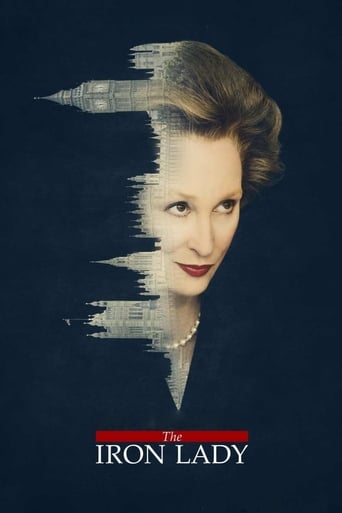
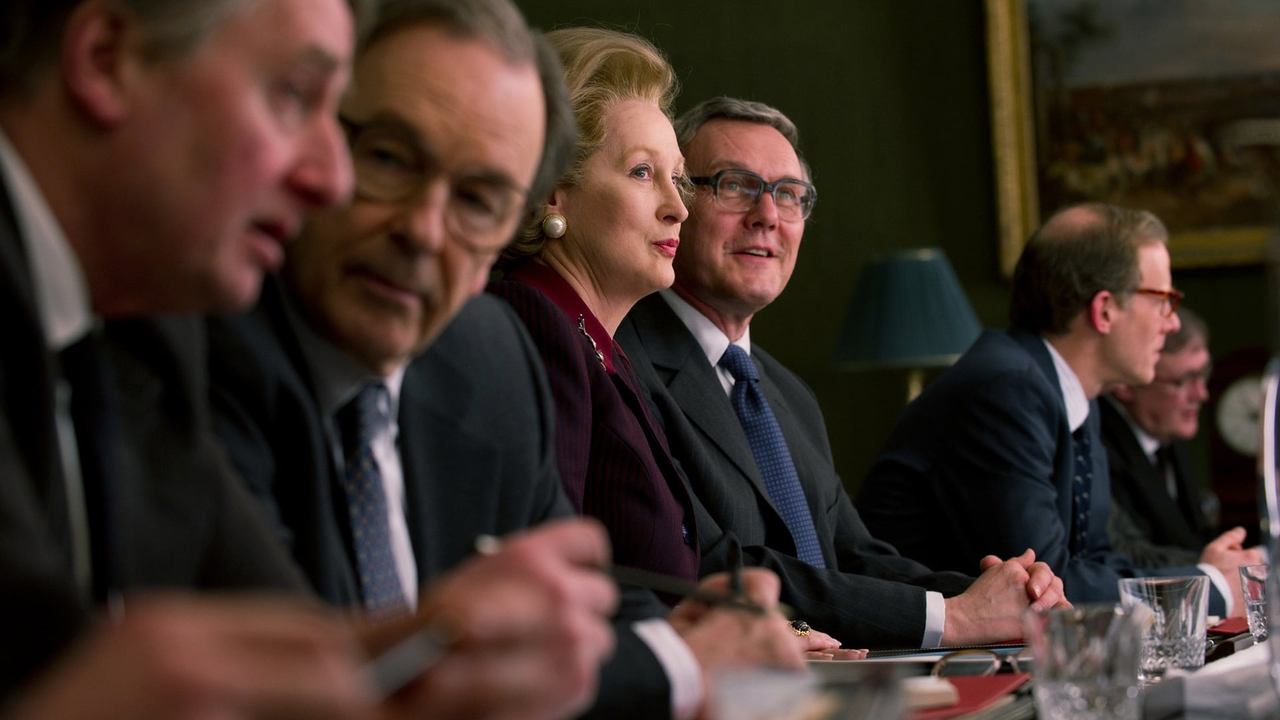

 AD
AD




